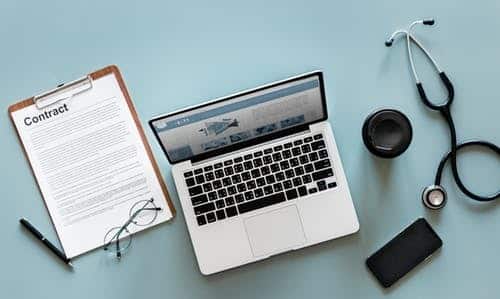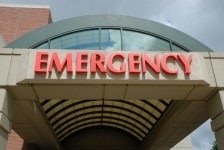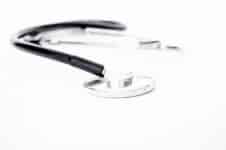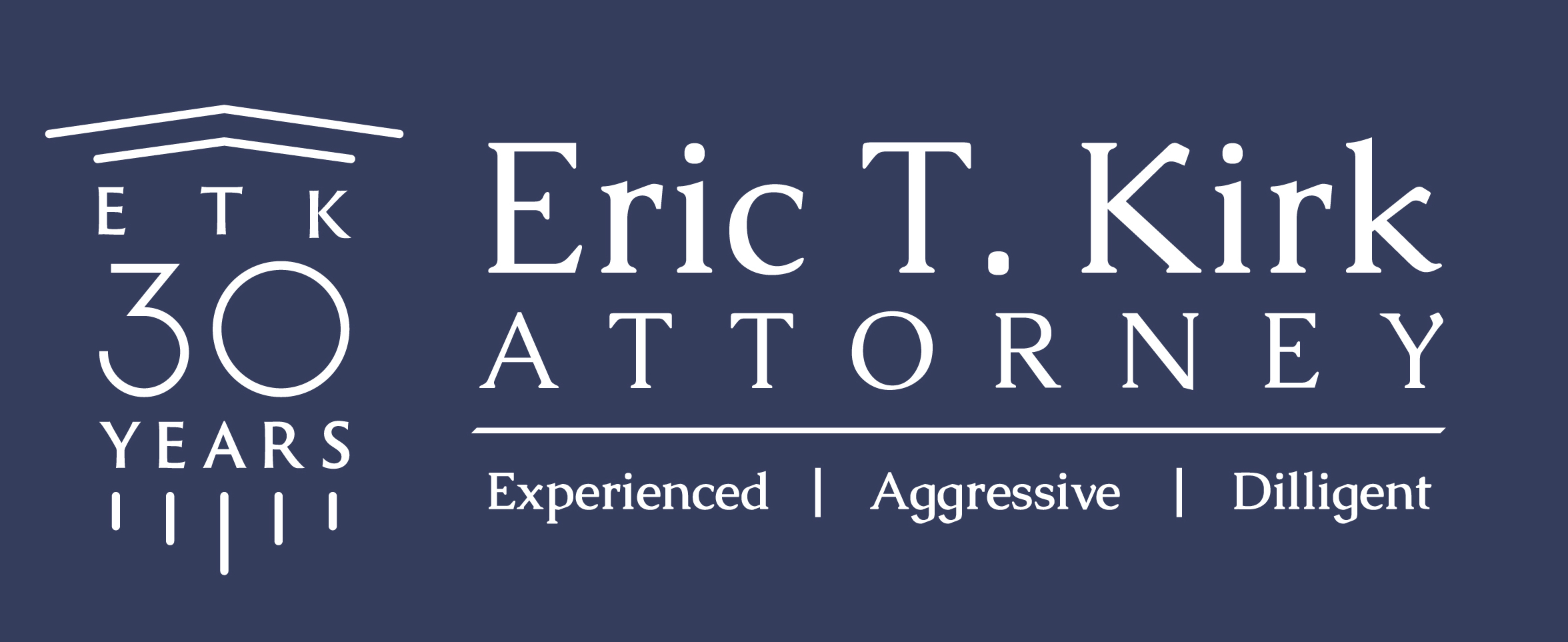If I Have COVID-19 Can I Get Maryland Workers’ Compensation Benefits?

The CDC and WHO tell us that that the virus that causes COVID-19 is novel. Injured workers who have continued to work during the pandemic will present novel legal issues when claiming Maryland COVID-19 worker’s compensation benefits. As Attorney Eric T. Kirk will tell you.
If you believe you contracted COVID-19 through exposure at work, or through and incident that occurred at work, or while on work associated travel, you may be eligible for Maryland workers’ compensation benefits.

Under typical circumstances, injured workers are entitled to:
- The payment of their medical expenses
- Wage loss benefits
- Monetary Compensation for Permanent Impairment
Maryland workers’ compensation law provides a these of benefits for injured workers who have sustained an accidental personal injury as a result of their employment.
“Accidental personal injury means a disease or infection that naturally results from an accidental injury that arises out of and in the course of employment” and includes “an occupational disease”.
“Occupational disease” means a disease contracted
as the result of and in the course of employment; and
that causes the covered employee to become temporarily or permanently, partially or totally incapacitated”.
Source: § 9-101 of the Labor and Employment Article
COVID-19 Contraction as an Accidental Injury
We can all imagine scenarios where someone contracts COVID-19 through an accidental injury at work, e.g. a single unintentional, accidental exposure to substances containing pathogens at a testing lab, or the single demonstrable exposure to bodily fluids to medical professionals and first responders while acting out their duties. Indeed, some states have extended, at least to some extent, workers’ compensation benefits for first responders and health care professionals with COVID-19. Maryland has not yet acted in this regard.
COVID-19 as an Occupational Disease

The more difficult question arises in the setting of occupational diseases. Certainly, everyone who contracts the common cold, also caused by a virus, is not eligible for workers’ compensation benefits.1 Initially, it seems clear that COVID-19 would be considered a disease. The experts monitoring, and hopefully eventually curing the injured, and halting the pandemic consider infection with the virus a disease. “On February 11, 2020 the World Health Organization announced an official name for the disease that is causing the 2019 novel coronavirus outbreak, first identified in Wuhan China. The new name of this disease is coronavirus disease 2019, abbreviated as COVID-19. In COVID-19, ‘CO’ stands for ‘corona,’ ‘VI’ for ‘virus,’ and ‘D’ for disease.” 2
Maryland workers’ compensation law provides a provides a limitation for coverage for occupational diseases to those which are
“due to the nature of an employment in which hazards of the occupational disease exist and the covered employee was employed before the date of disablement; or” which
has manifestations that are consistent with those known to result from exposure to a biological, chemical, or physical agent that is attributable to the type of employment in which the covered employee was employed before the date of disablement; and….it reasonably may be concluded that the occupational disease was incurred as a result of the employment of the covered employee.”
Source: § 9-502 of the Labor and Employment Article

The nature of a pandemic, is, unfortunately, that the pathogenic substance is, or may be, literally, anywhere. The hazards of COVID-19, may or soon will be prevalent in all facets of life, not just in connection with a specific workplace. The CDC advises us that “there is currently no vaccine to prevent coronavirus disease 2019 (COVID-19), and that the best way to prevent illness is to avoid being exposed to this virus.” “The virus that causes COVID-19 seems to be spreading easily and sustainably in the community (“community spread”). Community spread means people have been infected with the virus in an area, including some who are not sure how or where they became infected.” 3 “The virus is thought to spread mainly from person-to-person: 4
- Between people who are in close contact with one another (within about 6 feet).
- Through respiratory droplets produced when an infected person coughs or sneezes.”
All Maryland workers’ compensation cases are decided on a case-by-case basis. Often, the proof requirements can be complex. In many if not most cases, the connection between the work related incident and the resulting physical impairment or disability must be established by competent medical evidence.
Under either theory of recovery, an injured worker making a COVID-19/workers’ compensation claim must show a connection to the employment to be entitled to workers’ compensation benefits.
To be successful in a COVID-19/workers’ compensation claim, the injured worker must be able to show the were infected because of their work either by an
- identifiable single event, or
- by an exposure due to the nature of their employment in which the hazards of the disease exist
- by an exposure attributable to their type of employment
Maryland’s Governor has issued an order that permits, some may say, a surprising number of businesses to stay open during the COVID-19 pandemic. In the absence of specific legislation , each case will continue to be decided on a case by case basis. For those injured workers who remain employed during the pandemic that ultimately contract COVID-19, a claim for Maryland workers’ compensation benefits will most likely be denied by the insurance company. A skilled workers’ compensation attorney may be able to successfully argue that the condition is compensable. Factors that I would look to include:
- A single, verifiable accidental exposure
- The injured worker’s pre-contraction quarantine, hygiene, social distancing, and isolation practices
- Infection within their social circle
- The nature and circumstances of the employment
I typically offer to personally meet with any worker who has sustained an on the job injury. During the COVID-19 pandemic, I’m extending a complimentary telephone consultation to injured workers stricken with COVID-19. I offer a free legal analysis of and legal opinion regarding the claims during an initial strategy session. Feel free to contact me today. 410 591 2835.
FN1 “Coronaviruses are a large family of viruses. Middle East Respiratory Syndrome (MERS) and Severe Acute Respiratory Syndrome (SARS) are two other examples of coronaviruses that originated from animals and then spread to people.” https://www.cdc.gov/coronavirus/2019-ncov/faq/#anchor_1584386215012
FN2 https://www.cdc.gov/coronavirus/2019-ncov/faq/#anchor_1584386553767
FN3 https://www.cdc.gov/coronavirus/2019-ncov/faq/#anchor_1584386215012
FN4 “Currently there is no evidence to support transmission of COVID-19 associated with food. It may be possible that a person can get COVID-19 by touching a surface or object that has the virus on it and then touching their own mouth, nose, or possibly their eyes, but this is not thought to be the main way the virus spreads.”
https://www.cdc.gov/coronavirus/2019-ncov/faq/#anchor_1584386215012


